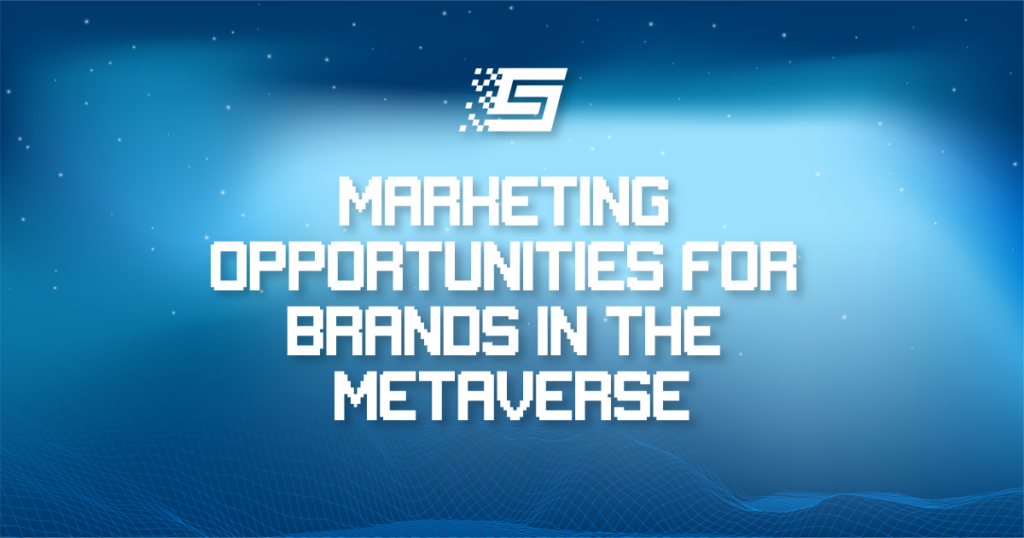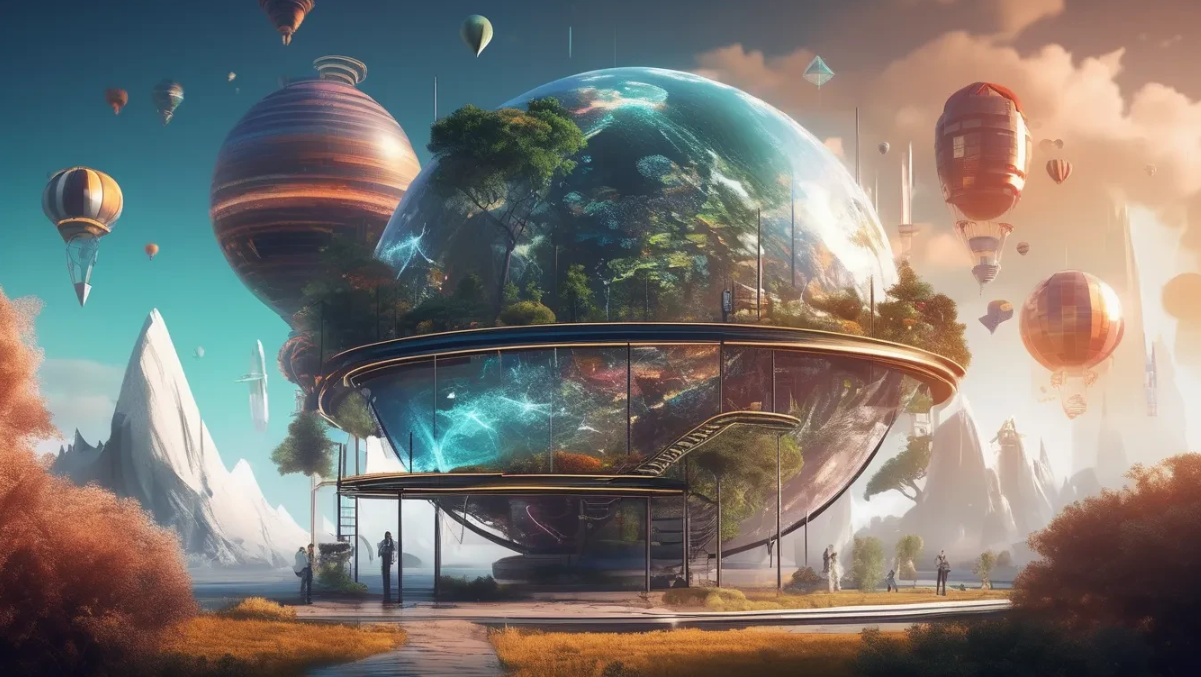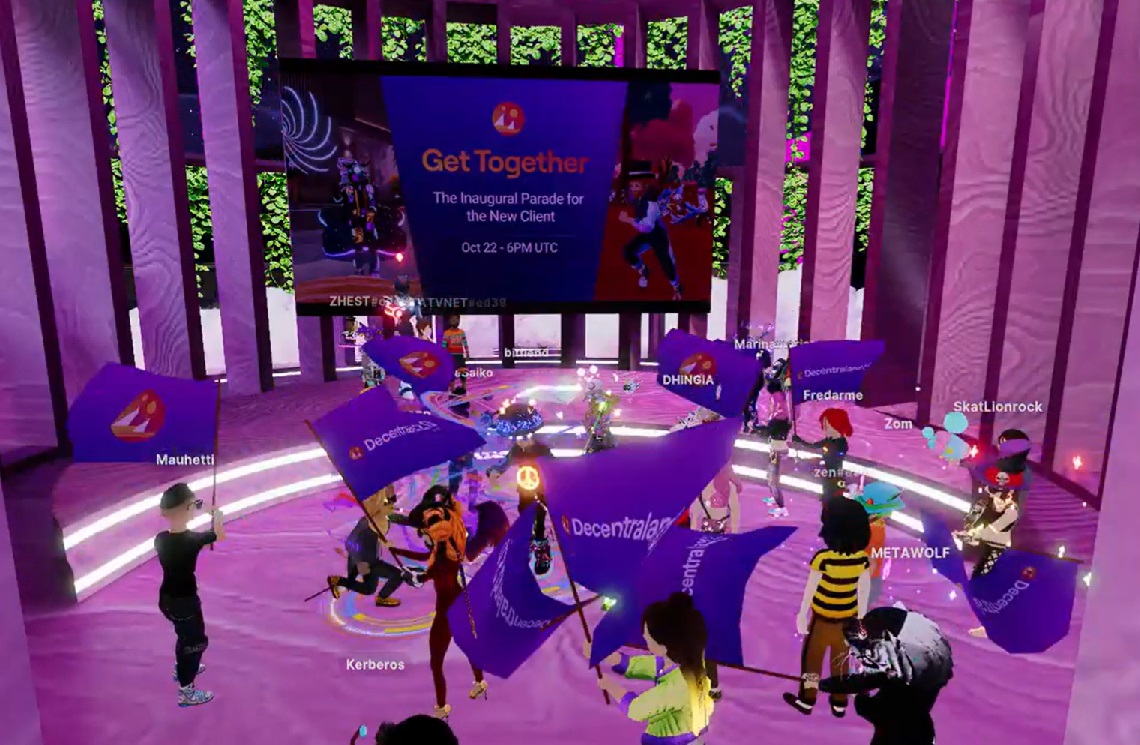
The Top 5 Metaverse Platforms For Brand Marketing
Since the emergence of the coronavirus epidemic, consumer behavior has transformed drastically. More and more people are doing their shopping, playing, working, and studying online than ever before. The metaverse represents the next phase of the internet and claims to be a hybrid of physical and virtual worlds. It aims to transform how we see the world by blurring the boundaries between virtual and physical reality.
Overall, the metaverse is loaded with various business opportunities, and a number of top brands are already dabbling in it. Over the coming years, the metaverse will become an everyday reality. While some of the older audiences are sure to participate, the primary groups that are getting acquainted with the metaverse are millennials and Gen Zers.
It is time to consider setting up shop in the metaverse if your product or service appeals to audiences that are ready to immerse themselves in VR (virtual reality) and spend the majority of their time there. But you might need to do some market research in order to see where your target consumer is.
Because marketing and advertising in the metaverse are still in their early stages, the cost of running a campaign is relatively low. This makes it a profitable alternative for brands looking for creative methods to reach Millennials and Gen Z audiences. Businesses in fashion, retail, digital design, and entertainment all stand to benefit significantly from metaverse platforms. With Gen Zs controlling the metaverse, we cannot emphasize their importance enough as customers.
The following is a list of our favorite metaverse platforms for brand marketing.
Decentraland
Decentraland is a blockchain-based virtual social space run on the Ethereum network. It enables users to develop digital properties like residences, art galleries, theme parks, and concert halls. The Decentraland metaverse platform was founded in 2015 by Esteban Ordano and Ari Meilich and is currently managed by the Decentrland Foundation.
This single-layer metaverse environment is split into grids of equal size and is limited to 90,000 plots. Only the community can produce new land through the Decentraland DAO. Users of the platform can utilize a drag-and-drop construction tool to install 3D creations in the space.
In this open metaverse users can play games and earn Decentraland’s native token MANA with which they can purchase NFTs like LAND or collectibles. They can also vote on economic growth or create their own NFTs, granting them real-world interoperability for the value of the time spent in-game. Brands can utilize Decentraland’s ecosystem to build games and virtual products for the marketplace or conduct conferences.
The Sandbox
The Sandbox is based on the Ethereum blockchain and is a well-known platform in the metaverse ecosystem due to its reliability and security. The Sandbox’s official currency is the SAND. This token can be used to buy and exchange LAND and other NFTs in the metaverse and pay Ethereum gas fees. Each digital patch of land is a one-of-a-kind, non-fungible ERC-721 token.
The Sandbox is a collection of different games, locations, and other experiences. In this limitless environment, artists and gamers can develop and own property and generate revenue in the metaverse. The Sandbox ecosystem comprises two main components: the Game Maker and the Sandbox Marketplace.
– With the Game Maker, brands and creators can build 3D game experiences in the Sandbox metaverse. No coding experience is needed, so even novice game designers can start their own projects.
– In the Sandbox Marketplace, participants monetize their digital assets by trading them with other Sandbox players.
The Sandbox, founded by Sébastien Borget and Arthur Madrid, was released as a video game in 2012. Animoca Brands purchased the company In 2018 and implemented blockchain technology in the game.
The Sandbox has already collaborated with well-known businesses, including Atari, The Walking Dead, and Smurfs. These collaborations have taken the shape of events and virtual concerts from artists such as Snoop Dogg and Deadmau5.
Roblox
The Roblox metaverse platform allows users to play games created by other players. It is among the most successful performers in the metaverse industry and has grown to include 47 million daily active users worldwide and 9.5 million creators since its inception in 2004.
According to Roblox’s website, more than 20 million games have been created by its users. Several well-known brands have created immersive experiences on the platform that are centered around their products and content, including Gucci Garden, Nikeland, and the Roblox recreation of Starcourt Mall from Stranger Things.
Bloktopia
Bloktopia is a virtual reality skyscraper with 21 levels in honor of the 21 million Bitcoin. This high-tech tower emerges from a dying planet and has an NFT-based economy that enables brands and creators to own land and build virtual real estate. Commercials and events generate revenue for users of the metaverse platform.
This metaverse world allows visitors to play games with friends, engage in basic or advanced learning, build networks, earn cash, and much more. In Bloktopia, brands can express their creativity by building settings and artwork using a simple builder tool. The platform is supported by the Polygon network and is constructed on Unity, a cross-platform gaming engine by the founders of Sony Playstation VR.
Horizon Worlds
Horizon Worlds is a free-to-use virtual world that allows users to socialize, play, explore, and create. This is Meta’s first initiative to release something that is similar to Mark Zuckerberg’s metaverse concept. Participants can explore Meta’s adventures in an immersive environment where they can move freely with a legless avatar. In addition, users can create their own experiences inside this metaverse platform.
Horizon Worlds as a Meta product has the potential to attract millions of people. You can create a range of different experiences, host virtual meetings, and build communities within the Horizon Worlds metaverse. Furthermore, Meta is releasing additional features and templates that allow creators to build their own games on the platform.


